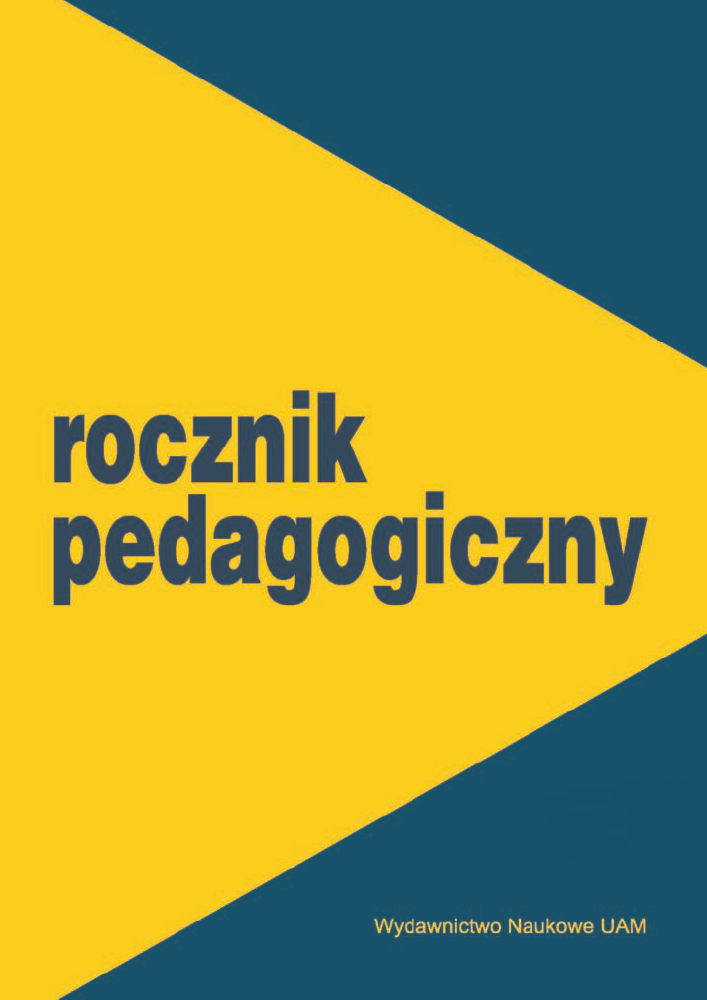Abstract
The analysis of theatre’s impact on children’s development usually takes into account four areas: social, emotional, cognitive and cultural. Group outings to theatre are usually an entertaining and pleasant way of spending time outside of school. The article shows, on the example of selected theatre performances dedicated to children aged 4–9 years, how theatre can become an alternative to school and what theatre can teach the youngest audience in the cognitive area. The content of the watched and experienced performances is likely to remain in the minds of the audience, while they quickly forget what they have learnt at school.
References
Dewey J., Demokracja i wychowanie. Wstęp do filozofii wychowania, przeł. Z. Bastgen, Książka i Wiedza, Warszawa 1963.
Dewey J., Educational Esseys, Blackie &Son, Limited, London b.r.
Dewey J., Moje pedagogiczne credo, Wydawnictwo Akademickie „Żak”, przeł. J. Pieter, Warszawa 2005.
Gadacz T., Historia filozofii XX wieku. Nurty, t. 2, Wydawnictwo Znak, Kraków 2009.
Janik A., Edukacja teatralna. O jej potrzebie i formalnych możliwościach edukacji wczesnoszkolnej, [w:] Dziecko w sytuacjach uczenia się. Codzienność w poznawaniu świata i siebie, red. J. Malinowska, E. Jezierska-Wiejak, Instytut Pedagogiki Uniwersytetu Wrocławskiego, Wrocław 2017, s. 53–69.
Kalinowska K., Kulturowy entourage pedagogiki teatru, [w:] Pedagogika teatru. Kierunki, refleksje, perspektywy, red. J. Czarnota-Misztal, M. Szpak, Instytut Teatralny im. Zbigniewa Raszewskiego, Warszawa 2018, s. 8–14.
Królica M., Teatr we wczesnej edukacji dziecka, „Edukacja Elementarna w Teorii i Praktyce” 2008, nr 4, s. 31–44.
Milerski B., Pedagogika kultury, [w:] Pedagogika. Podręcznik akademicki, red. Z. Kwieciński, B. Śliwerski, Wydawnictwo Naukowe PWN, Warszawa 2019, s. 347–362.
Sienkiewicz-Wilowska J.A., Jak wprowadzać dziecko w świat teatru, „Wychowanie w przedszkolu” 2013, nr 6, s. 5–9.
Twain M., Mark Twain’s Memory-Builder. Rules of the Game, https://timeonline.uoregon.edu/twain/rules.php [dostęp: 5.09.2021].
Tyszkowa M., Recepcja sztuki teatralnej przez dzieci, „Nowa Szkoła” 1969, nr 3, s. 35–36.
Wojnar I., Drogi rozwoju nowoczesnej koncepcji wychowania przez sztukę, [w:] Wychowanie przez sztukę, red. I. Wojnar, Państwowe Zakłady Wydawnictw Szkolnych, Warszawa 1965, s. 147–160.
Wojnar I., Humanistyczne i antropologiczne rozumienie kultury – kontrowersje i wzbogacenia, [w:] J. Gajda, Pedagogika kultury w zarysie, Oficyna Wydawnicza „Impuls”, Kraków 2006, s. 307–318.
Wojnar I., Humanistyczne intencje edukacji, Wydawnictwo Akademickie „Żak”, Warszawa 2000.
Żardecki W., Teatr w refleksji i praktyce edukacyjnej. Ku pedagogice teatru, Wydawnictwo UMCS, Lublin 2012.
License
Copyright (c) 1970 Anna Sanecka

This work is licensed under a Creative Commons Attribution-NonCommercial-NoDerivatives 4.0 International License.

